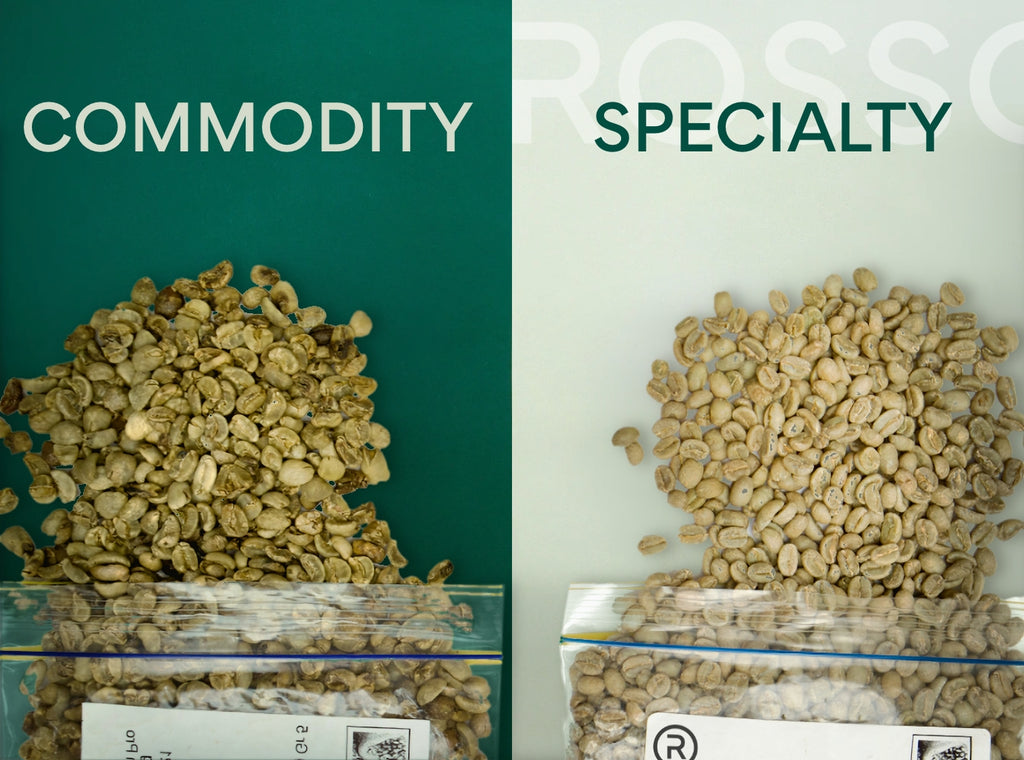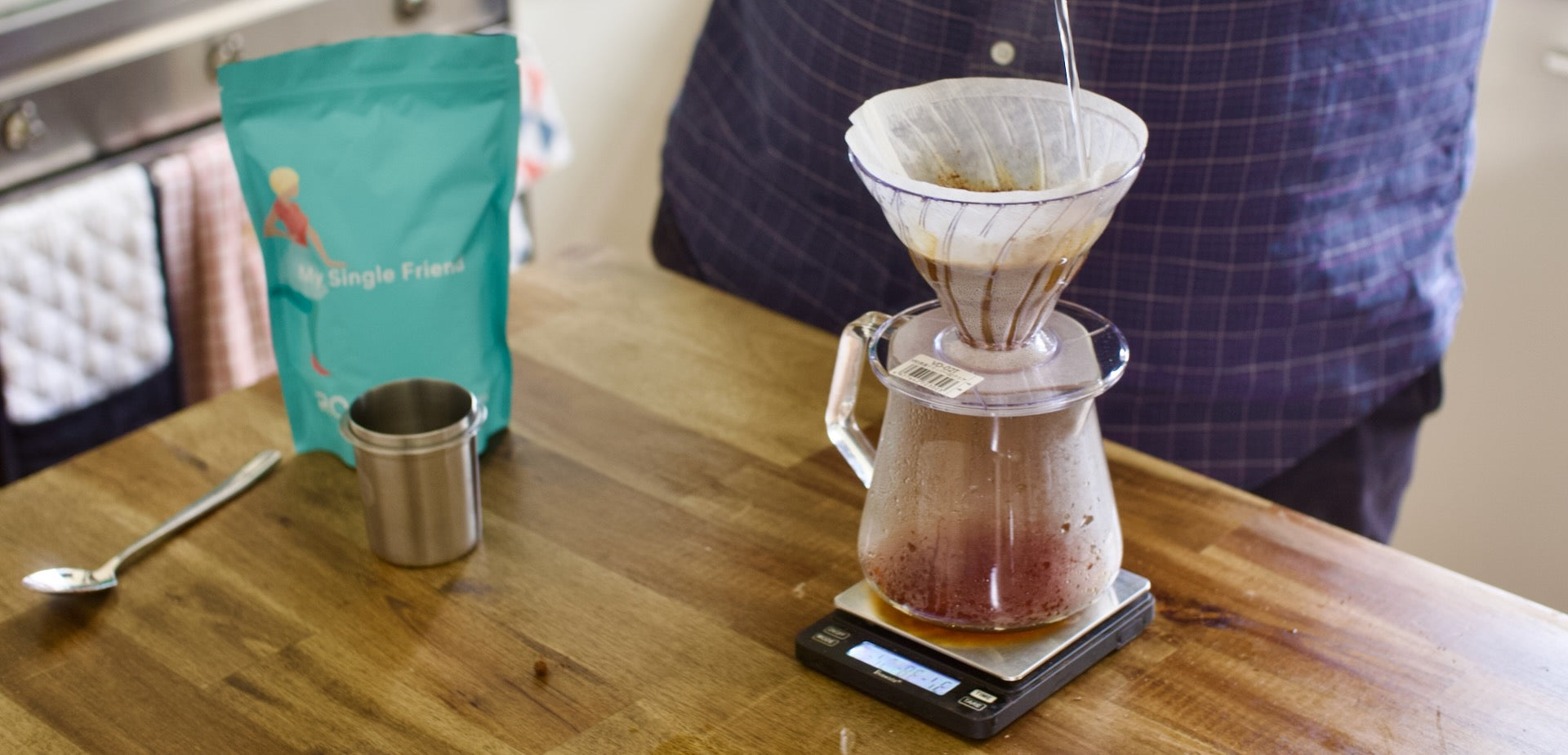
Why Choose Specialty Coffee Over Commodity Blends?

Roasting coffee requires knowledge, expertise and care for the job that is not present in most coffees found in supermarkets and chain coffee shops. This begins with sourcing coffee as green beans from farms across the globe.
Commodity coffee producers pay little respect to the removal of defective and unripe beans and other contaminants during harvest, leading to unwanted earthy, harsh or off flavours in the coffee. This is how cheap green coffee can be produced as low as $4 a kg - despite the months of time to fruit and harvest each coffee tree.
Location, Location, Location

Specialty coffee farms are also limited to a few select regions and conditions around the world which are a unique mixture of high elevation, dappled tree cover (Coffee plants grow best under the shade of taller forestry) and hand-picked cherries which reduces damage and contaminants to the fruit.
Processing

Similar to removing the seed from a cherry - the coffee bean has to be removed from the fruit. This can be done either mechanically or via sundrying the flesh until the seed is all that remains. Most cheap coffee is machine washed for sake of speed. Part of specialty coffee production is ensuring the process is paired to the coffee varietal and is bringing out it’s inherent qualities. Specialty processes also focus on filtering out unripe fruit and removing contaminations and other matter from the batch to achieve near 0 defect rates.
Roasting

Finally, the green coffee beans are shipped to the roasters to be roasted and packaged for production. Specialty coffee products utilise the taste and skill of a “master roaster” who hand roasts and samples every batch to ensure the roasting temperate and duration is dialled in just right of the batch of green beans they’re working with.



Leave a comment
This site is protected by hCaptcha and the hCaptcha Privacy Policy and Terms of Service apply.